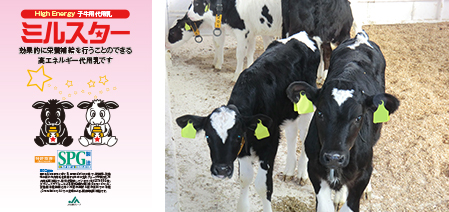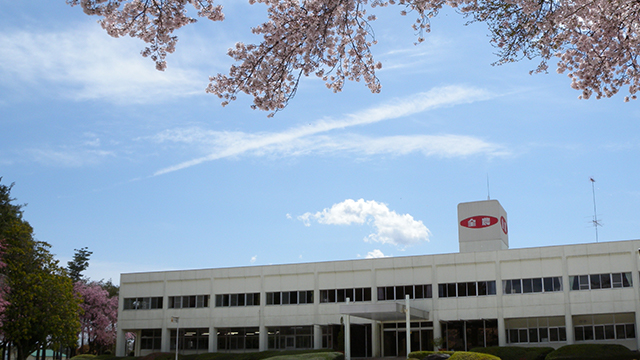
Research and Development
Livestock Production Business
Central Research Institute for Feed & Livestock
As a research facility that provides technical assistance for the management of livestock farms and the JA Group’s feed and livestock businesses, the Central Research Institute for Feed & Livestock is engaged in the commercialization of compound feed, superior feeder livestock, and production materials and machinery; the development of technologies related to breeding management and productivity improvements; and holding training courses, among other activities. These activities are carried out by 37 researchers at four facilities in Tsukuba and Kasama, Ibaraki Prefecture, and Kamishihoro and Kunneppu, Hokkaido.
Its recent achievements include: (i) development of feed suited for the breeding improvement that continue to advance from year to year in the poultry industry; (ii) commercialization of a new breed of pigs promising high growth potential, high quality of meat, and increased shipments, as well as development and promotion of feeds and management systems for such varieties; and (iii) development of technologies for using ICT equipment to improve productivity and save labor in the beef industry through reducing the occurrence of accidents in the calving of Wagyu and dairy cattle; and development of low-cost breeding systems and feeds.
Further efforts underway include (iv) feeder improvements through genome analysis and (v) development of compound feeds and livestock assessment methods through new analytical methods. The Institute will continue to develop and promote innovative products and technologies using scientific knowledge and the latest technologies, while engaging in good faith with feedback from field studies.
- Research, development and guidance
-
- Development of milk replacer or starter for piglets and calves
- Development and promotion of feeds that can maximize the productivity of chickens enhanced through breed improvements
- Development and promotion of new varieties of pigs promising high growth potential, high quality of meat, and increased heads shipped, as well as feeds and management systems for such varieties
- Development and promotion of technologies for improving productivity and saving labor in the production of Wagyu and dairy cattle using ICT equipment
- Testing to ensure safety and security
-
- Support for Kumiai feed companies in improving their quality control technology
- Analysis of ingredients of feeds and materials as required for product development
- JA Group's efforts in human resources development
-
- Support for technical training by holding livestock production technology seminars
- Preparation of livestock production technology handbooks and provision of technical support
- Provision of latest technical information via the Internet
R&D achievements
Eggshell strengthening agent, ESQ
ESQ improve eggshell quality.
Calcium is absorbed in the intestine and used to create eggshells in the oviduct. Calbindin mediates this process. ESQ is a supplement for increasing the amount of calbindin in order to strengthen the eggshell and reduce breakage rates. Its active ingredients are vitamin D metabolites, organic acids and a probiotic, Bacillus subtilis JA-ZK, developed by ZEN-NOH. Giving ESQ-added feeds to egg-laying hens can reduce the eggshell breakage rate and contribute to improving the income and expenditure balance of poultry farms.
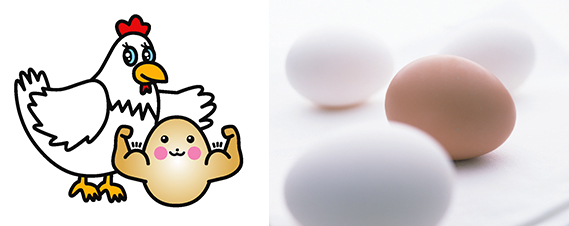
Establishment of technology for producing HI-COOP Pig and techniques for producing differentiated pork
ZEN-NOH has developed its own variety of pig, the HI-COOP pig. The Institute carries out activities to establish and disseminate the technology for breeding and fattening this new variety.
With a view to producing differentiated pork using this pig, the Institute conducts research from a variety of angles, including development of production technology based on advanced feed nutrition science and analytical technology for evaluating the quality of meat.
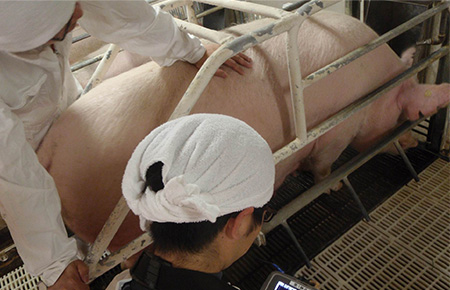
Study of technology for breeding and fattening
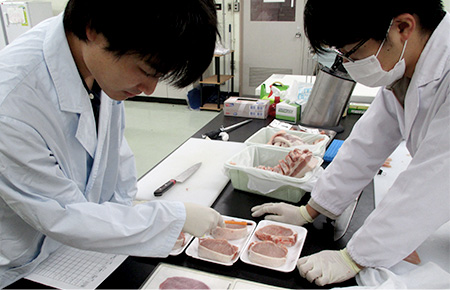
Establishment of techniques for producing differentiated pork
Development and promotion of highly prolific HI-COOP Pigs
Since introducing brood sows from Sweden in 2007, the Institute has been developing highly prolific HI-COOP Pig varieties, aiming to increase the number of pigs to be shipped from 23 to 26 per sow/year. As a result, it succeeded in developing the highly prolific varieties, Landrace (ZENNOH-L), Large Yorkshire (ZENNOH-W), and their hybrid, F1, whose meat is equal to or higher than the traditional varieties in quality. Using the prolific F1 sows, pig farmers have increased litter size by about three piglets per sow/year.
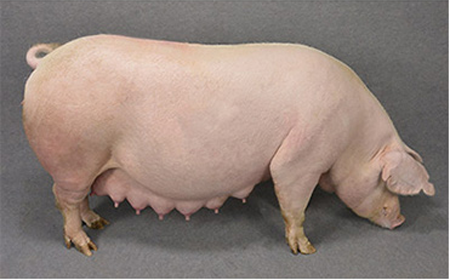
ZENNOH-L (sow)
Development of high-fat substitute milk for calves, Milstar
At the request of calf farmers, the Institute developed a high-fat milk replacer containing 25% or more of crude fat, named Milstar. Milk replacer with a high fat content reduces the intake of starter. To overcome this challenge, the Institute developed a new type of fat composition and succeeded in increasing the fat content in milk replacer. In tests during the cold season, when the fat content has a significant effect, the use of Milstar improved the intake of starter by about 17% and the growth performance by about 26%, and also improved the glossiness of calf hair.
